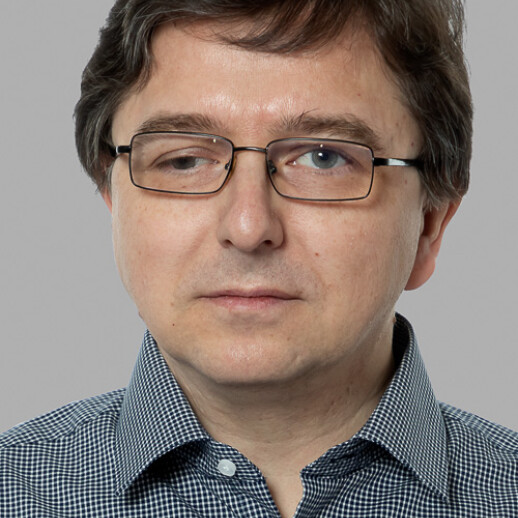Fotosynteettiset mikrobit
Fotosynteesi on kestävin luonnollinen prosessi, jossa vesi hajotetaan ja ilmakehän CO₂ sidotaan biomassaksi auringon energian avulla. Vaikka tämä prosessi on erittäin tehokas ja evoluution myötä optimoitu, siinä on yhä kehittämisen varaa. Tavoitteenamme on ymmärtää fotosynteesiä, parantaa sen tehokkuutta ja hyödyntää tätä tietoa innovatiivisten bioteknologisten sovellusten kehittämisessä.
Seuraa meitä LinkedInissä @PhotoMicrobes ja Blueskyssa: @photomicrobeslab.bsky.social
PhotoMicrobes-tiimin tutkimus keskittyy pääasiassa syanobakteerien, levien ja kasvien fotosynteesiin, erityisesti vaihtoehtoisiin elektroninsiirtoreitteihin ja niiden rooliin fotosynteesin säätelyssä. Tiimi hyödyntää tätä tietoa kehittääkseen kestäviä bioteknologisia sovelluksia kahden päästrategian avulla: lyhyen aikavälin lähestymistapa keskittyy kestävän leväbiomassan tuotantoon kiertotalouden bio¬taloutta varten, ja pitkän aikavälin lähestymistapa tähtää uusien elävien solutehtaiden ja suunniteltujen elävien materiaalien kehittämiseen auringosta peräisin olevalla energialla tapahtuvaan kemikaalien ja -polttoaineiden tuotantoon. Näin ollen hyödynnämme sekä luonnollista biodiversiteettiä että edistyneitä geeniteknologisia menetelmiä.
Tällä hetkellä tutkimme:
(i) vaihtoehtoisia elektroninsiirtoreittejä ja fotosynteesin säätelyä syanobakteereissa ja viherlevissä;
(ii) Kiinteään materiaaliin integroidut solutehtaat kiinteätilaisten solutehtaiden ja suunniteltujen elävien materiaalien (ELM) kehittämistä tehokkaaseen aurinkoenergian hyödyntämiseen kemikaalien ja polttoaineiden tuotannossa
(iii) sähkön tuottamista kestävästi syanobakteereista ja levistä eksosähkögeneesin avulla, mukaan lukien sen toimintamekanismit;
(iv) pohjoisten syanobakteerien ja levien biodiversiteetin hyödyntäminen teollisuusjätevesien tehokkaaseen puhdistuksessa, ravinteiden talteenotossa ja arvokkaiden yhdisteiden tuotannossa
2025-2028 - Research Council of Finland, national research infrastructure roadmap – FIN- BioFoundry;
2024-2026 - Business Finland co-research project AlgaCircle;
2024-2028 - EU HE RIA, Solar to Butanol S2B (https://www.s2b-project.eu/);
2024-2029 - Jane and Aatos Erkko foundation, PhotoFactory;
2023-2027 - Research Council of Finland, Photo-e-Mat;
2023-2027 - Finnish Cultural Foundation;
2022-2026 - EU Horizon Europe IA, REALM (https://realmalgae.eu);
2023-2025 - Tandem Industry Academia, Finnish Research Impact Foundation, AgriAlga;
2022 - Donation from Maa- ja vesitekniikan tuki ry;
2022-2025 - EU CSA, SUNER-C (https://sunergy-initiative.eu);
2021-2023 - Research project grant from the Novo Nordisk Foundation - PhotoCat;
2020-2023 - EU FET-Open, FuturoLEAF;
2020-2023 - Novo Nordisk Foundation - PhotoPro;
2019-2023 - Academy Project Funding, AlgaLEAF;
2018-2022 - Academy Project Funding, Revisiting Photosynthesis;
2017-2022 - NordForsk Nordic Center of Excellence "NordAqua" (https://realmalgae.eu)
Tiimimme on mukana useissa EU:n, Pohjoismaiden ja kansallisissa tutkimushankkeissa, ja teemme tiivistä yhteistyötä sidosryhmien ja teollisuuskumppaneiden kanssa. Tavoitteenamme on edistää kestäviä, luonnosta inspiraationsa saaneita teknologioita sekä kansallisella että EU-tasolla. Allahverdiyeva toimii varajohtajana FIRI-kansallisen tiekartan infrastruktuurissa FIN-BioFoundryssa, joka yhdistää VTT:n, Aalto-yliopiston, Tampereen yliopiston ja Turun yliopiston bioteknologiaosaamisen. Teemme mielellämme yhteistyötä tarjoamalla monipuolista laitekantaa, menetelmiä ja koulutusmateriaaleja fotosynteesistä ja siihen pohjaavista bioteknologisista menetelmistä.
Alumnit - Ph.D. students
Ph.D. Thesis (15.8.2025): Towards solar chemicals: Understanding and redesigning photosynthesis
Ph.D. Thesis (5.12.2024): Advancing agricultural sustainability through microalgae biotechnology innovations
Ph.D. Thesis (7.6.2024): Employing Solid-State Platforms for Photosynthetic Chemical Production
Ph.D. Thesis (26.11.2021): Accelerating innovation in biotechnology through knowledge in cyanobacterial photosynthesis
Ph.D. Thesis (19.11.2021): Dynamic regulation of oxygenic photosynthesis in cyanobacteria by flavodiiron proteins
Ph.D. Thesis (27.05.2019): Improving the efficiencies of photoautotrophic biofuel production: from biomass to biocatalysts
Ph.D. Thesis (14.9.2018): Acclimation responses of hydrogen producing cyanobacteria
Ph.D. Thesis (16.3.2018): Integrative regulation of major bioenergetic pathways in Synechocystis sp. PCC 6803
Ph.D. Thesis (08.09.2017): Photoprotective auxiliary electron transport pathways in cyanobacteria
Ph.D. Thesis (26.02.2016): Alternative electron transfer routes involved in photoprotection of cyanobacteria
Ph.D. Thesis (13.03.2015): Oxygen Photoreduction in Cyanobacteria
Ph.D. Thesis (19.12.2014): Extended hydrogen photoproduction by nitrogen-fixing cyanobacteria
Alumnit - PostDocs
Currently a group leader at the University of Turku https://www.utu.fi/en/people/lauri-nikkanen
Currently a postdoc at the Institute of Plant Biochemistry, Germany.
Currently a postdoc at the Uppsala University, Sweden https://www.uu.se/en/contact-and-organisation/staff?query=N21-2037
Currently a senior researcher at the Monash University, Australia https://research.monash.edu/en/persons/fiona-lynch
Vierailevat tutkijat
Carlo Esposito

















